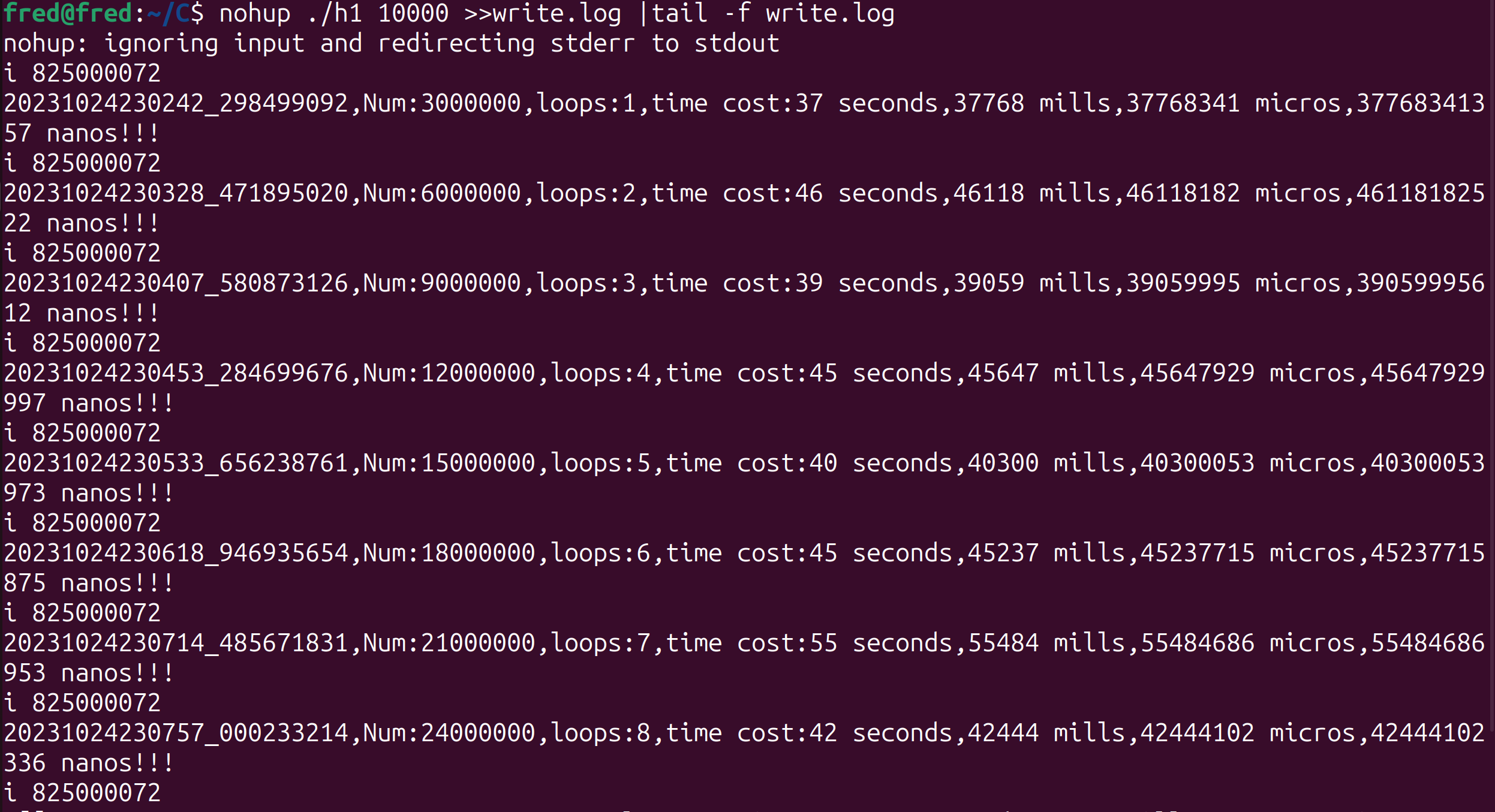//create table t1; create table t1(id bigserial not null primary key,author varchar(40) not null,comment varchar(40) not null,content varchar(40) not null,header varchar(40) not null,isbn varchar(40) not null,object varchar(40) not null,summary varchar(40) not null);

//main.cpp #include <algorithm> #include <barrier> #include <chrono> #include <fstream> #include <iomanip> #include <iostream> #include <memory> #include <map> #include <queue> #include <random> #include <sstream> #include <thread> #include <time.h> #include <uuid/uuid.h> #include <vector> #include <pqxx/pqxx> std::string get_time_now(bool is_exact = true) { std::chrono::time_point<std::chrono::high_resolution_clock> now = std::chrono::high_resolution_clock::now(); time_t raw_time = std::chrono::high_resolution_clock::to_time_t(now); struct tm tm_info = *localtime(&raw_time); std::stringstream ss; ss << std::put_time(&tm_info, "%Y%m%d%H%M%S"); if (is_exact) { auto seconds = std::chrono::duration_cast<std::chrono::seconds>(now.time_since_epoch()); auto mills = std::chrono::duration_cast<std::chrono::milliseconds>(now.time_since_epoch()); auto micros = std::chrono::duration_cast<std::chrono::microseconds>(now.time_since_epoch()); auto nanos = std::chrono::duration_cast<std::chrono::nanoseconds>(now.time_since_epoch()); ss << "_" << std::setw(3) << std::setfill('0') << (mills.count() - seconds.count() * 1000) << std::setw(3) << std::setfill('0') << (micros.count() - mills.count() * 1000) << std::setw(3) << std::setfill('0') << (nanos.count() - micros.count() * 1000); } return ss.str(); } char uuid_value[37]; uint32_t rand32() { return ((rand() & 0x3) << 30) | ((rand() & 0x7fff) << 15) | (rand() & 0x7fff); } char *gen_uuid4(size_t len) { int n = snprintf(uuid_value, len, "%08x-%04x-%04x-%04x-%04x%08x", rand32(), // Generates a 32-bit Hex number rand32() & 0xffff, // Generates a 16-bit Hex number ((rand32() & 0x0fff) | 0x4000), // Generates a 16-bit Hex number of the form 4xxx (4 indicates the UUID version) (rand32() & 0x3fff) + 0x8000, // Generates a 16-bit Hex number in the range [0x8000, 0xbfff] rand32() & 0xffff, rand32()); // Generates a 48-bit Hex number // return n >= 0 && n < len; // Success only when snprintf result is a positive number and the provided buffer was large enough. return uuid_value; } void insert_into_pqsql_t1(const int &loops) { try { std::uint64_t num = 0; std::stringstream ss; std::string insert_sql; int last_comma_idx = -1; std::chrono::time_point<std::chrono::high_resolution_clock> _start_time, _end_time; for (int loop = 0; loop < loops; ++loop) { pqxx::connection conn("dbname=db user=fred password=Fred0001!"); pqxx::work trans(conn); ss = std::stringstream(); srand(time(NULL)); _start_time = std::chrono::high_resolution_clock::now(); ss << "insert into t1(author,comment,content,header,isbn,object,summary) values "; for (int i = 0; i < 3000000; i++) { ++num; ss << "('" << gen_uuid4(37) << "','" << gen_uuid4(37) << "','" << gen_uuid4(37) << "','" << gen_uuid4(37) << "','" << gen_uuid4(37) << "','" << gen_uuid4(37) << "','" << gen_uuid4(37) << "'),"; } last_comma_idx = ss.str().find_last_of(","); if (last_comma_idx > 0) { std::cout << typeid(last_comma_idx).name() << " " << last_comma_idx << std::endl; insert_sql = ss.str(); ss = std::stringstream(); insert_sql = insert_sql.substr(0, last_comma_idx); // std::cout << insert_sql << std::endl; pqxx::result res = trans.exec(insert_sql); trans.commit(); _end_time = std::chrono::high_resolution_clock::now(); std::cout << get_time_now() << ",Num:" << num << ",loops:" << loop + 1 << ",time cost:" << std::chrono::duration_cast<std::chrono::seconds>(_end_time - _start_time).count() << " seconds," << std::chrono::duration_cast<std::chrono::milliseconds>(_end_time - _start_time).count() << " mills," << std::chrono::duration_cast<std::chrono::microseconds>(_end_time - _start_time).count() << " micros," << std::chrono::duration_cast<std::chrono::nanoseconds>(_end_time - _start_time).count() << " nanos!!!" << std::endl; } } std::cout << get_time_now() << ",finished thread id:" << std::this_thread::get_id() << " line: " << __LINE__ << " of " << __FUNCTION__ << std::endl; } catch (const std::exception &e) { std::cerr << e.what() << '\n'; } } void thread_insert_into_t1(const int &loops) { std::thread t1(insert_into_pqsql_t1, std::cref(loops)); t1.join(); } int main(int args, char **argv) { thread_insert_into_t1(atoi(argv[1])); std::cout << get_time_now() << ",finished in " << __LINE__ << " of " << __FUNCTION__ << std::endl; }
//compile g++-13 -std=c++23 -I. main.cpp -luuid -lpthread -libpqxx -o h1;
//run nohup ./h1 10000 >>write.log |tail -f write.log

select * from t1 order by id desc limit 1;
